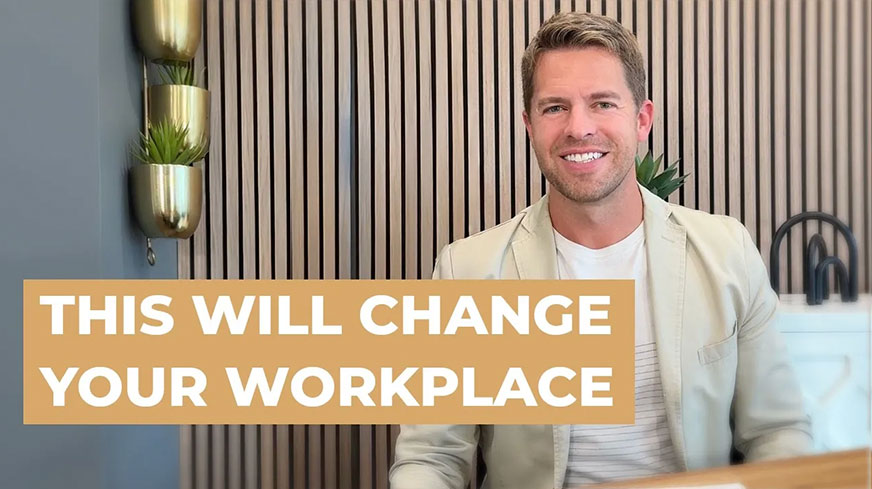
Assume the Best: How to Solve the Number One Issue in Workplaces Today
December 4, 2024
I recently had a conversation with a manager who was dealing with an issue with one of his team members. The person was feeling anxious because he received few emoji reactions to a message he had posted on Microsoft Teams. He was concerned that his coworkers were unhappy or upset with him.
These negative assumptions were causing him a huge amount of worry as well as frustration with his coworkers.
The Biggest Issue in Workplaces Today
The biggest problem in workplaces today is that people don't assume the best.
Issues arise when our minds jump to negative conclusions. There are so many unknowns in the modern workplace. Unfortunately, the human mind typically jumps to the worst case scenario when faced with unknowns.
I've never seen a section in a bookstore about how to think negatively. There's always a section, however, about positive thinking. Thinking
negative comes easily to most people. Thinking positively and assuming the best is much more difficult.
When most people come across a scenario where there's an unknown, they assume the worst. But so many problems in business today occur because of this.
I believe 90 percent of the issues people experience in business today would be absolved if we all assumed the best.
Assuming the Best is the Secret to Harmony in the Workplace
When dealing with uncertainties involving colleagues, one should always assume positive intent.
Doing so frees you from the torture of the unknown. Plus, it blesses your coworker the benefit of the doubt.
As author James Clear says,
“When working with people, assume good intentions. When listening to people, interpret their words in a generous way. You will occasionally get burned and mistreated by always assuming the best in others, but it is a far better way to live than the opposite.”
It's human nature to justify our own actions with external circumstances - blaming traffic lights or unforeseen events when we're late, for instance. However, when the roles are reversed and a coworker is tardy, it's surprisingly easy to jump to negative conclusions about their character or dedication. Instead, we should extend the same grace we give ourselves, acknowledging that they, too, might face unexpected challenges.
The Golden Rule is a great idea here: assume the best of others because you want them to
assume the best of you.
But What if My Colleague Doesn't Deserve the Benefit of the Doubt?
Some may say, "I don't want to assume the best about my coworker. He doesn't deserve it."
While assuming the best is incredibly kind, it isn't just a gift to the
other person, it's a gift to yourself. You're freeing yourself from the the stress of the unknown.
How to Assume the Best of Your Coworkers
Assuming positive intentions in others can be challenging. One effective strategy, however, is to familiarizing yourself with the personal stories of your coworkers.
Engaging in conversations, socializing, and showing genuine interest in their lives can reveal why someone acts the way they do. Perhaps it's due to health concerns or family issues. Understanding the background can provide context for their behaviors and help you view ambiguous situations more generously.
For instance, if you receive an email where the tone seems off, rather than immediately assuming conflict or misunderstanding, consider the possibility that the sender might be facing personal challenges or simply struggling with conveying tone through text.
Always share your own stories too, fostering a mutual understanding that can lead to a more empathetic workplace.
The Best Leaders Assume the Best and Help Their Team to Do the Same
If you're a leader, it's absolutely essential for you to lead by example by always assuming positive intentions of others.
Talk
about this concept with your team members regularly. Encourage them to always assume the best - even when it's difficult. Do so, and you're on your way to a better, more fulfilling workplace.